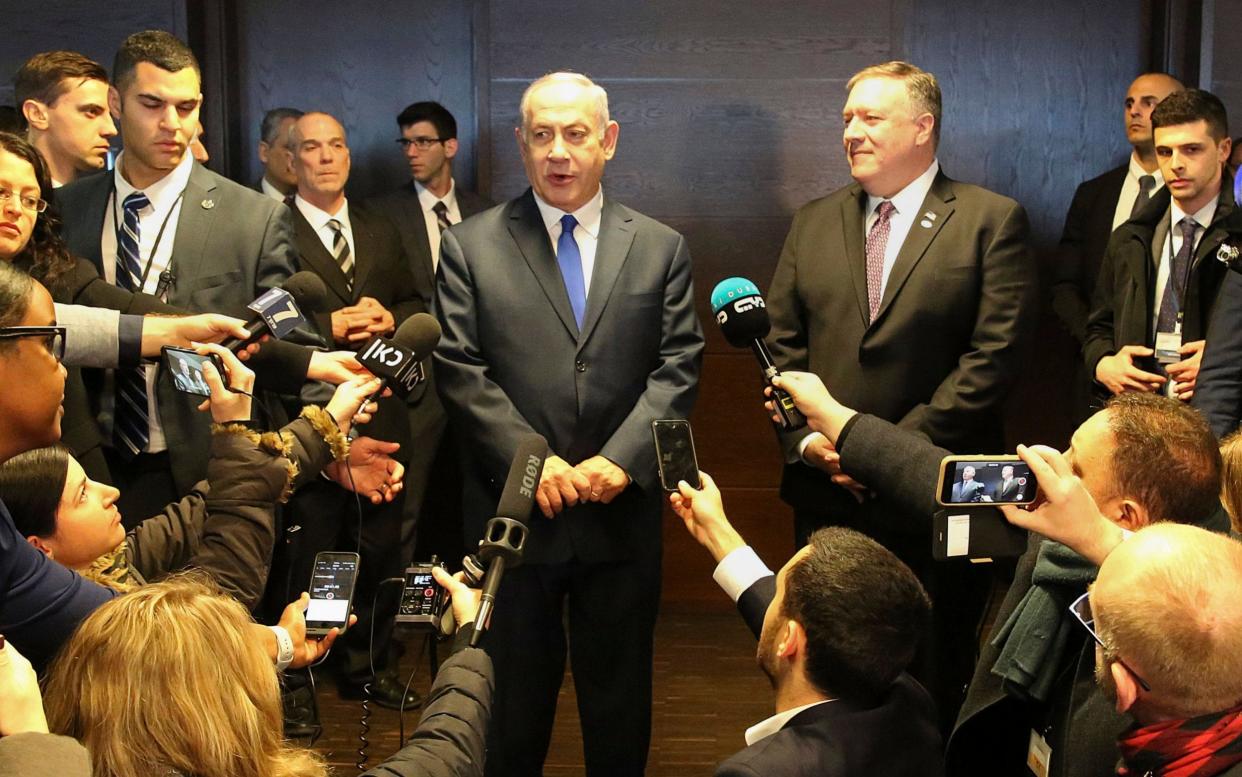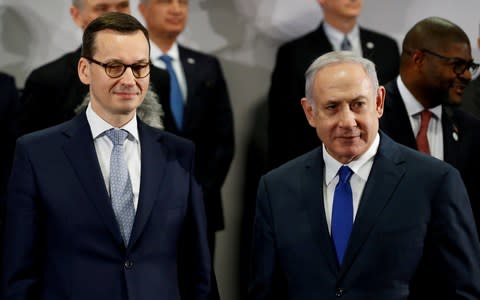Visegrad summit collapses after Israeli minister says Poles collaborated with the Nazis

A summit of European states due to be held in Israel has collapsed amid an escalating row over Israeli comments alleging Polish participation in the Holocaust.
The diplomatic row between the two countries had been escalating since Friday, when Israeli media reported remarks by Benjamin Netanyahu, the Israeli Prime Minister, suggesting Polish complicity in the Holocaust.
On Monday, Yisrael Katz, the Israeli foreign minister, resurrected an old quote from Yitzak Shamir, a former Israeli prime minister and Holocaust survivor, by saying “Poles suckle anti-Semitism from their mother's milk."
In response, Warsaw pulled out of the meeting, which was due to take place on Tuesday between the four Visegrad countries - Poland, Slovakia, the Czech Republic and Hungary - marking a new low in relations between Poland and Israel.
Mateusz Morawiecki, the Polish prime minister, branded the remarks "racist and unacceptable". He had previously said he would not join the summit, sending instead a lower-level delegation, but said on Monday that no Polish officials would now attend.
"Not only can we not accept such racist comments, but with all our strength we want to stress that we will fight for historical truth, for the honour of Poles," he told reporters.

He added that Poland was a victim of the Second World War and that many Poles had risked everything to help Jews fleeing the Nazis.
The Israeli ambassador to Warsaw was summoned for a half-hour meeting at the Polish foreign ministry on Monday, while the Polish ambassador to Israel tweeted the foreign minister’s remarks were “shameful, racist and utterly acceptable.”
Jewish leaders in Poland issued a statement saying that Shamir's words were "unjust already when they were first said, in 1989, when Polish-Israeli relations were just beginning to be rebuilt, after the long night of communism."
Although the Polish government accepted an explanation by Mr Netanyahu’s office that he had been “misquoted and misrepresented in press reports”, and that he was only referring to individual Poles rather than the Polish nation, his comments touched a nerve in Warsaw.

While accepting that some Poles betrayed and even murdered Jews during the war, the Polish government considers any insinuation that the Polish state was involved in the Holocaust or that Poles are anti-Semitic unjust and unfounded.
Last year the government introduced a controversial “Holocaust law” criminalising the act of blaming the Polish state for crimes committed against Jews by the Nazis. The law prompted a spat with Israel amid claims Warsaw was trying to whitewash elements of its wartime history.
Israel’s foreign ministry said on Monday that the leaders of the other Visegrad countries would still come to Israel to hold bi-lateral talks with Mr Netanyahu.
The Polish decision is a blow for Mr Netanyahu, who had hoped the Visegrad summit would burnish his diplomatic credentials ahead of Israel's April 9 election. He sees the Visegrad-4 as a counterbalance to western European countries, which tend to be more critical of Israel's policies towards the Palestinians.
But Mr Netanyahu has also faced criticism in Israel over what some see as a bid to win allies in central Europe at the expense of revising Holocaust history and whitewashing anti-Semitism.
